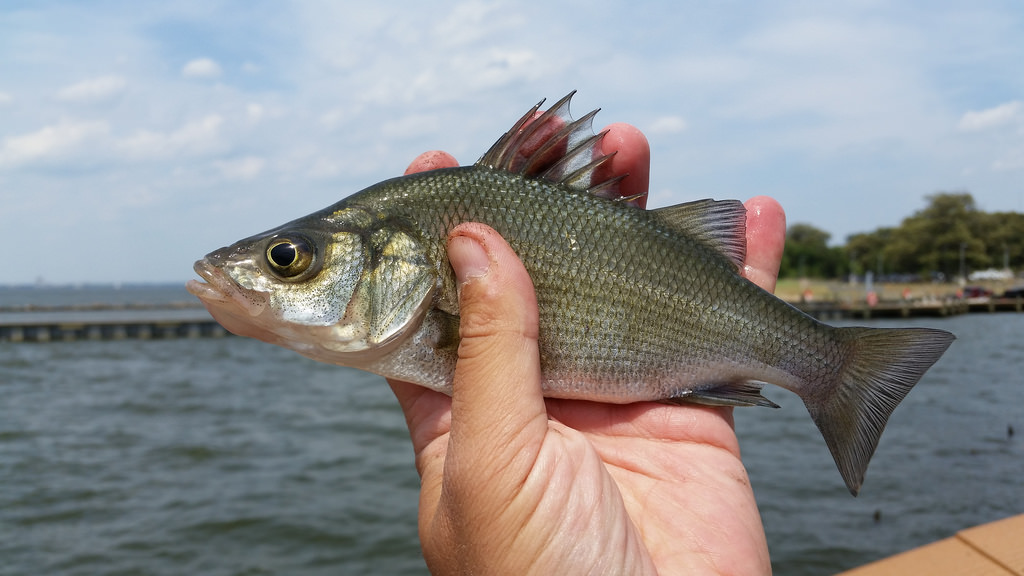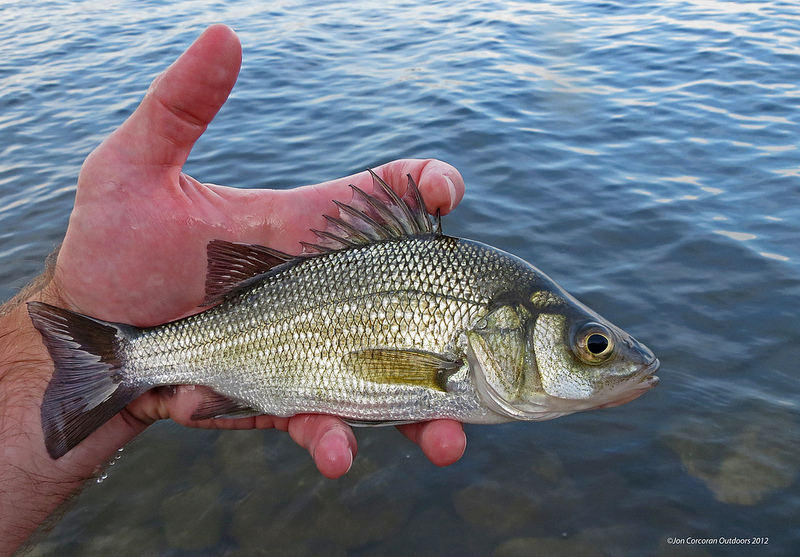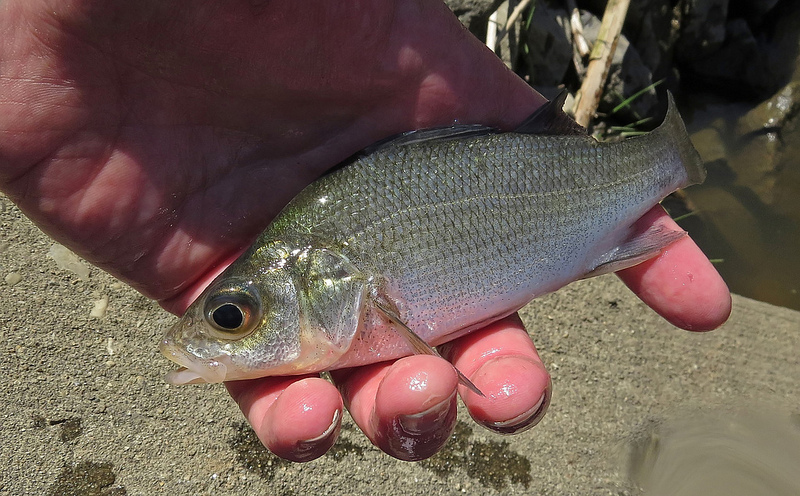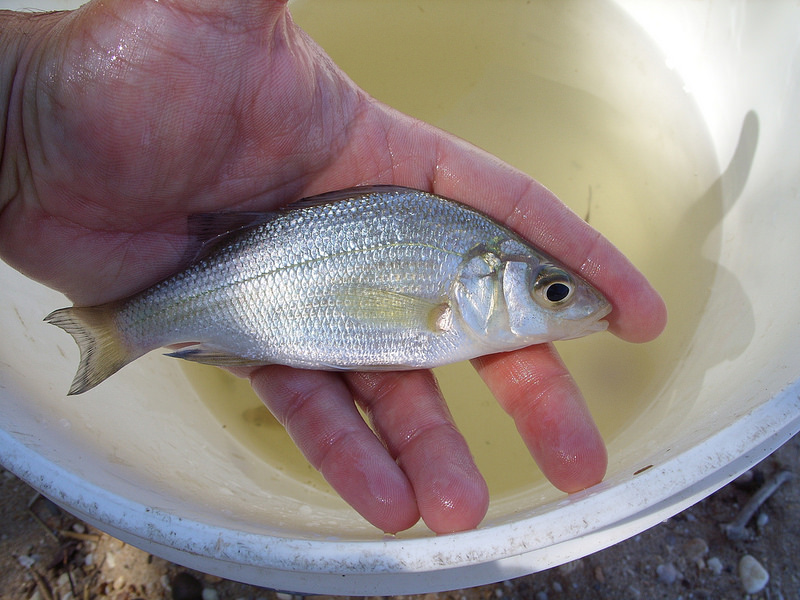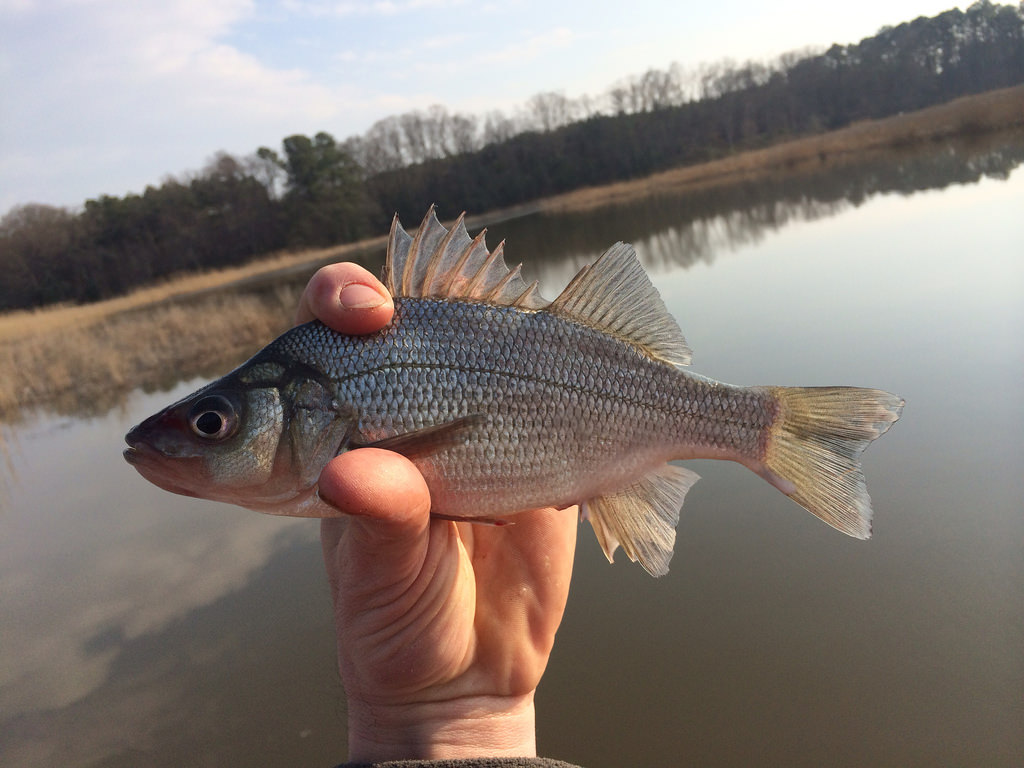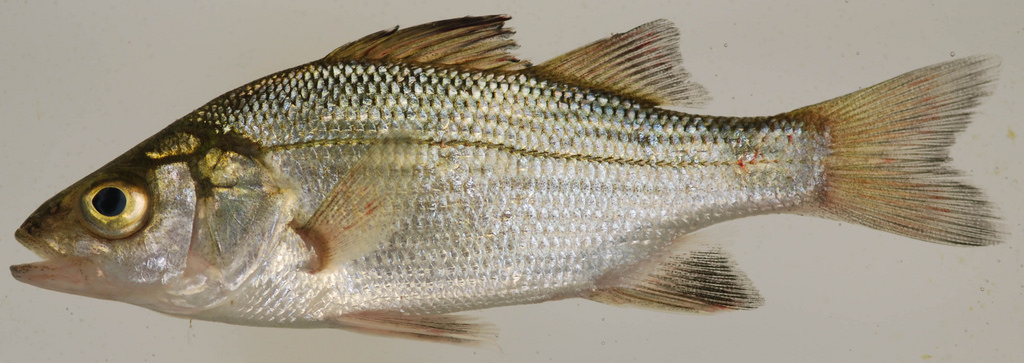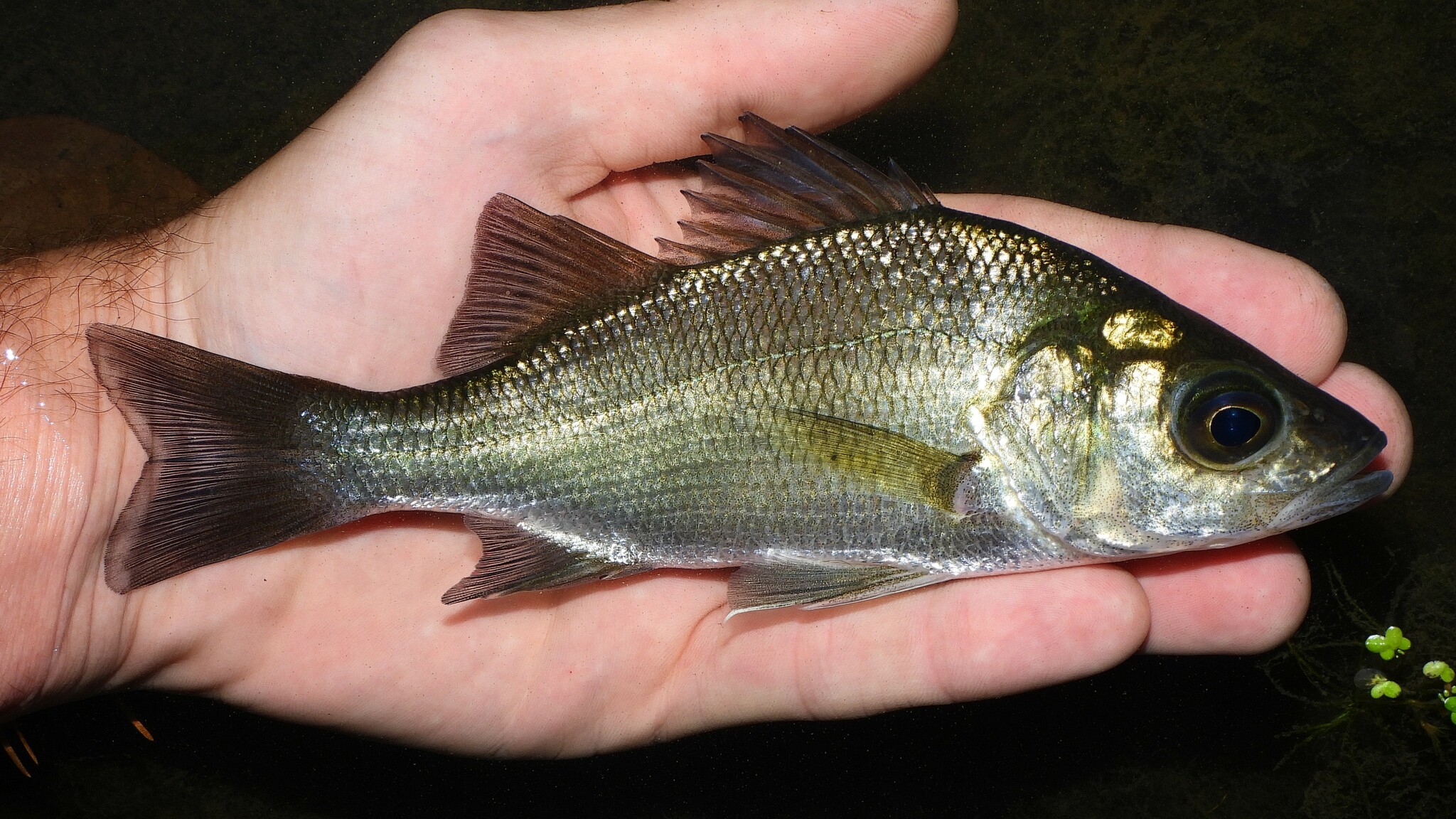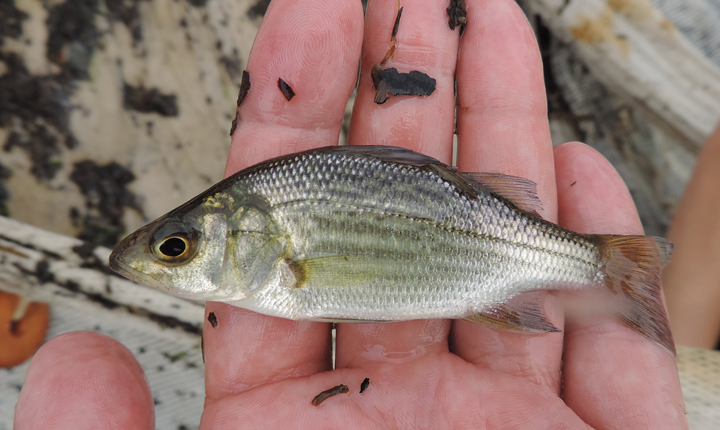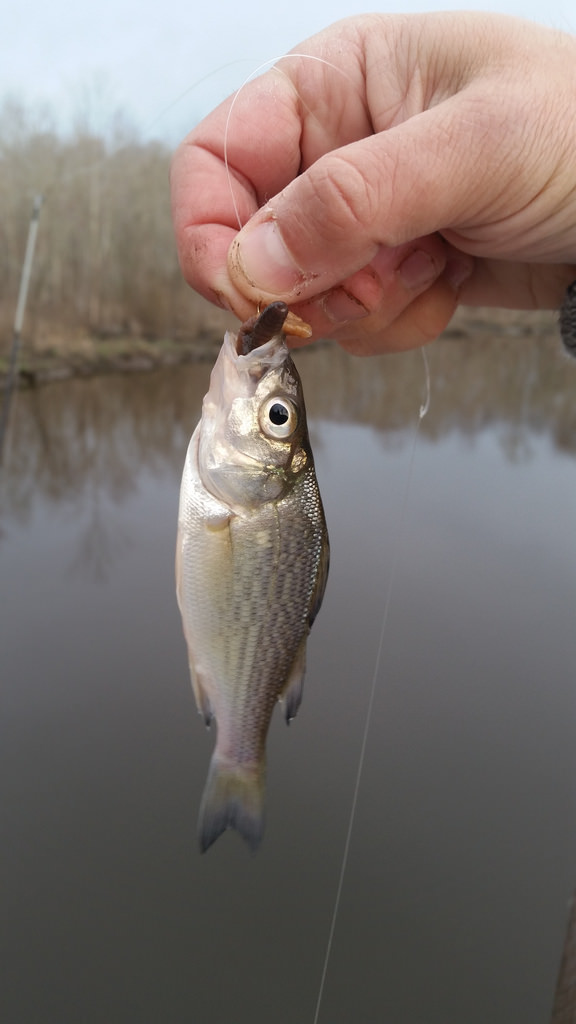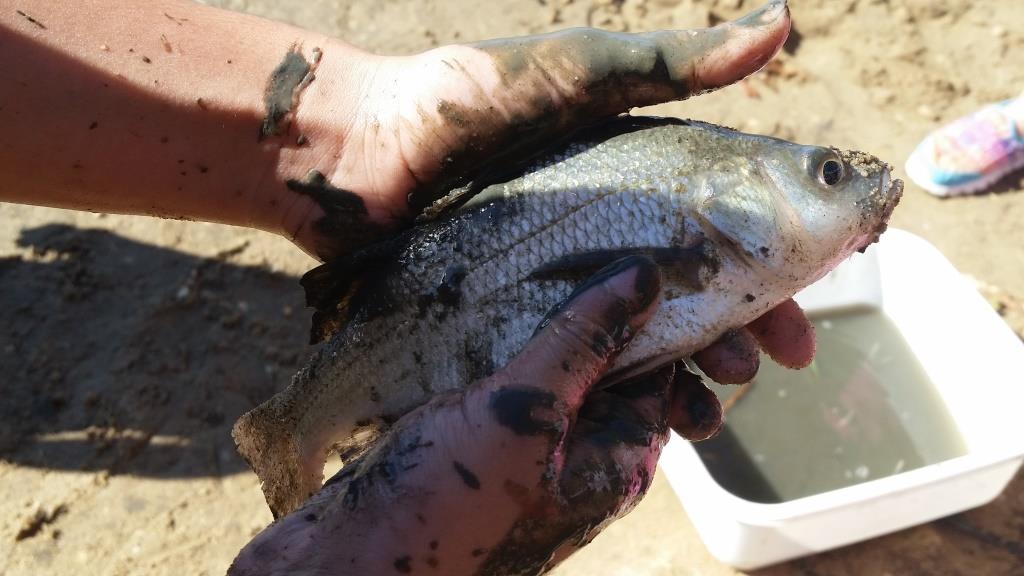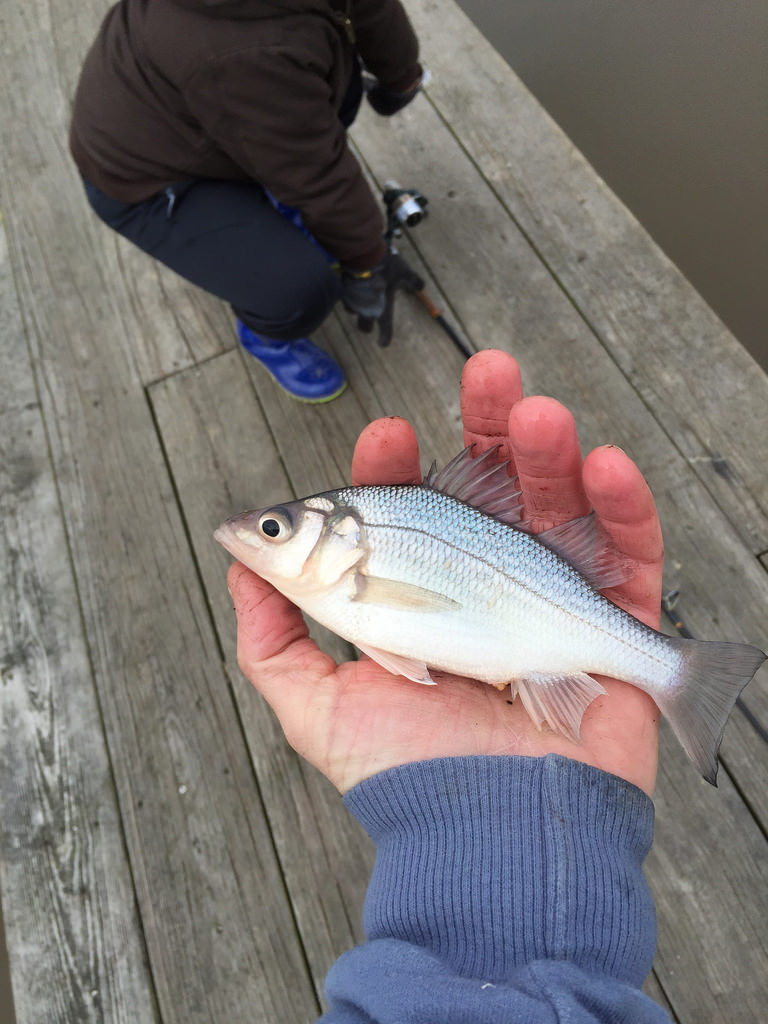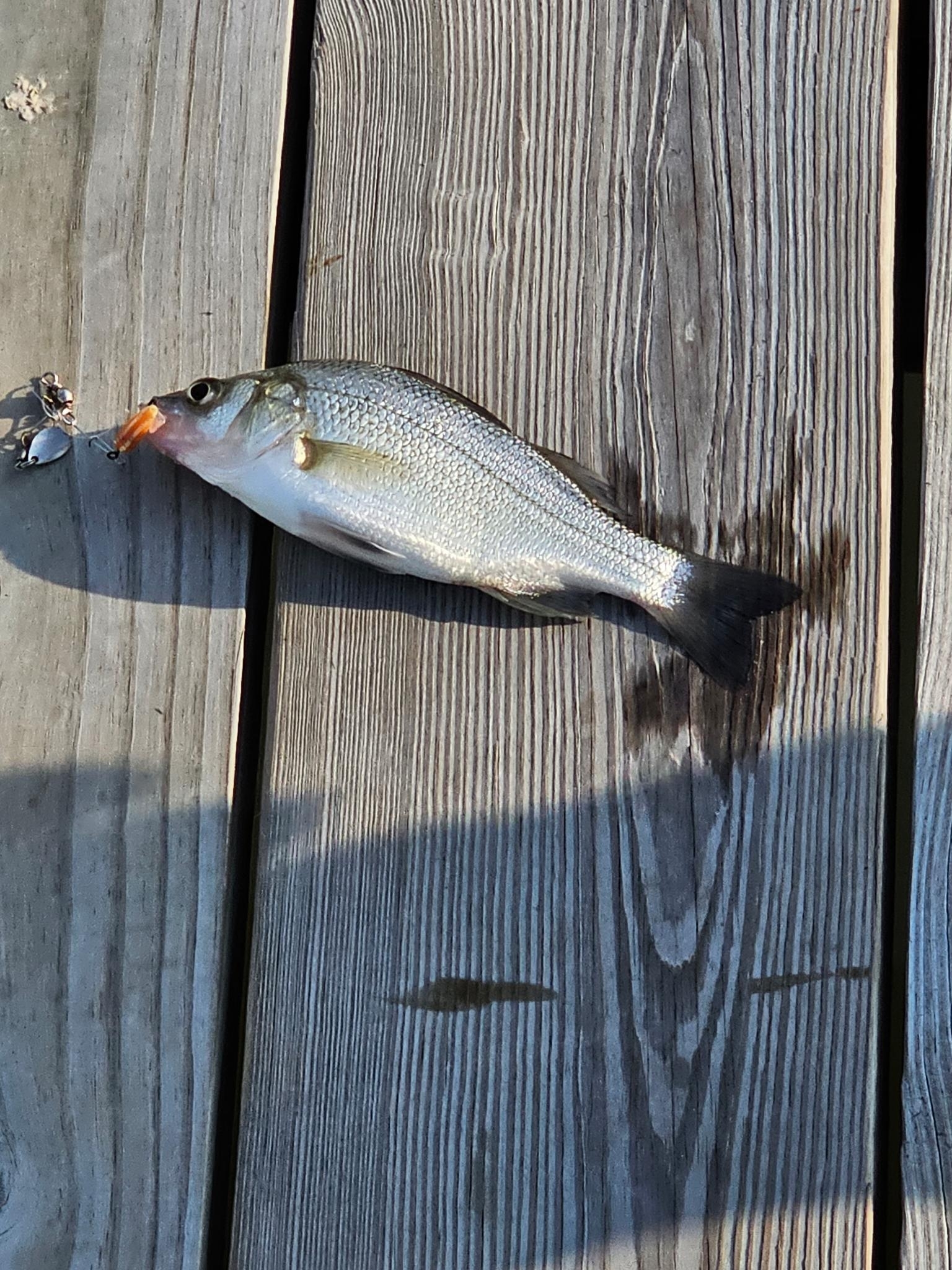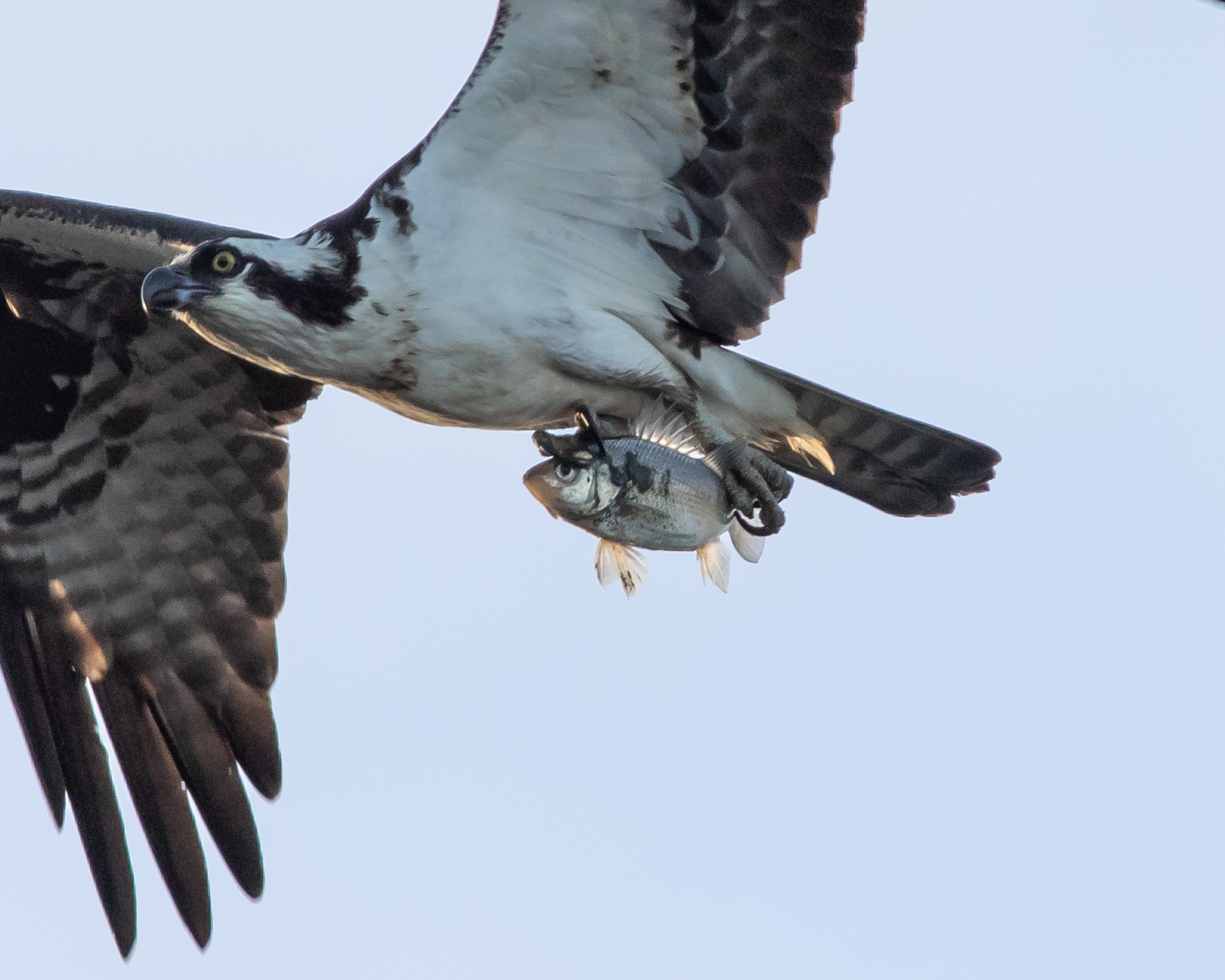Map Snapshot




















602 Records
Seasonality Snapshot
Source: Wikipedia
This article needs additional citations for verification. (February 2015) |
| White perch | |
|---|---|

| |
| Scientific classification | |
| Domain: | Eukaryota |
| Kingdom: | Animalia |
| Phylum: | Chordata |
| Class: | Actinopterygii |
| Order: | Acanthuriformes |
| Family: | Moronidae |
| Genus: | Morone |
| Species: | M. americana
|
| Binomial name | |
| Morone americana (J. F. Gmelin, 1789)
| |
| Synonyms[2] | |
The white perch (Morone americana) is not a true perch but is a fish of the temperate bass family, Moronidae, notable as a food and game fish in eastern North America. In some places it is referred to as "Silver Bass".[citation needed]
The common name "white perch" is sometimes applied to the white crappie (Pomoxis annularis).[3]
Description
[edit]Generally silvery-white in color, hence the name, depending upon habitat and size specimens have begun to develop a darker shade near the dorsal fin and along the top of the fish. This sometimes earns them the nickname "black-back". White perch have been reported up to 49.5 cm (19.5 in) in length and weighing 2.2 kg (4.9 lb).[4]
Ecology
[edit]Although favoring brackish waters, it is also found in fresh water and coastal areas from the St. Lawrence River and Lake Ontario south to the Pee Dee River in South Carolina,[5] and as far east as Nova Scotia.[6] They are also found in the lower Great Lakes, Finger Lakes, Long Island Sound and nearby coastal areas, Hudson and Mohawk River system, Delaware Bay and Chesapeake Bay. It is also found occasionally in small landlocked lakes and ponds.[7]
Diet
[edit]White perch are known to eat the eggs of many species native to the Great Lakes, such as walleye and other true perches. At times, fish eggs are 100% of their diet. They prefer to eat small minnows like mudminnows and fathead minnows.
In the Chesapeake Bay, white perch commonly prey upon grass shrimp, razor clams, and bloodworms which are all common to the region. [8]
Reproduction
[edit]White perch are a prolific species. The female can deposit over 150,000 eggs in a spawning session, lasting just over a week. Several males will often attend a spawning female, and each may fertilize a portion of her eggs. The young hatch within one to six days of fertilization.[citation needed]
At times, a parasite known as Lironeca ovalis is located in the gills. Its presence is believed to reduce the growth rate of white perch.[9]
The white perch is currently recovering from a loss of population in the Hudson River.[10]
Aquatic nuisance species
[edit]
Some states consider the white perch to be a nuisance species due to its ability to destroy fisheries. They have been associated with the declines in both walleye and white bass populations because they feed heavily on baitfish used by those species and outcompete them for food and space.[11] Many states have enacted laws forbidding possession of live white perch. Additionally, these states recommend not releasing captured white perch back into the water to help control its spread.[12]
References
[edit]- ^ NatureServe (2013). "Morone americana". IUCN Red List of Threatened Species. 2013: e.T184088A18231622. doi:10.2305/IUCN.UK.2013-1.RLTS.T184088A18231622.en. Retrieved 18 November 2021.
- ^ Froese, Rainer; Pauly, Daniel (eds.). "Morone americana". FishBase. February 2023 version.
- ^ "White Crappie (Pomoxis annularis)". Texas Parks and Wildlife. Texas Parks and Wildlife Department. Retrieved 12 February 2023.
- ^ "Maryland Fish Facts". Maryland Department of Natural Resources. Retrieved 2024-08-31.
- ^ P. Fuller; E. Maynard; D. Raikow; J. Larson; A. Fusaro; M. Neilson; A. Bartos (30 August 2023) [Peer reviewed on 12 April 2013]. "Morone americana (Gmelin, 1789)". Nonindigenous Aquatic Species Database. Gainesville, Florida: U.S. Geological Survey. Retrieved 14 October 2023.
- ^ Huot, Jesse (2023-12-28). "Sportfishing season opens New Year's Day in Nova Scotia". CTV News. Retrieved 2024-07-17.
- ^ "White Perch". CT.gov - Connecticut's Official State Website. Retrieved 2024-09-09.
- ^ Charlie, Chum (July 24, 2023). "How to Catch a White Perch". Catch & Fillet. Retrieved March 23, 2024.
- ^ Sadzikowski, Mark R.; Wallace, Dale C. (1974). "The Incidence of Lironeca ovalis (Say) (Crustacea, Isopoda) and Its Effects on the Growth of White Perch, Morone americana (Gmelin), in the Delaware River near Artificial Island". Chesapeake Science. 15 (3): 163–165. Bibcode:1974CpkSc..15..163S. doi:10.2307/1351036. JSTOR 1351036.
- ^ Caldwell, Dave (December 2021). "Kingston, N.Y.: A Historic Hudson City 'Preparing for Better Opportunities'". The New York Times.
- ^ "Invasive.org, White Perch". October 2018. Retrieved July 18, 2022.
- ^ "Kansas Department of Wildlife and Parks". July 18, 2022. Retrieved July 18, 2022.
External links
[edit] Media related to Morone americana at Wikimedia Commons
Media related to Morone americana at Wikimedia Commons- DNR.state.md: White perch Archived 2014-01-04 at the Wayback Machine
